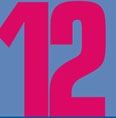
Chances are you've received "pre-approved" credit card offers in the mail. Examine the fine print carefully before you accept any offer for a credit or charge card.
Look for:
- The Annual Percentage Rate (APR). If the interest rate is variable, how is it determined and when can it change?
- The periodic rate. This is the interest rate used to figure the finance charge on your balance each billing period.
- The annual fee. While some cards have no annual fee, others expect you to pay an amount each year for being a cardholder.
- The grace period. This is the number of days you have to pay your bill before finance charges start. Without this period, you may have to pay interest from the date you use your card or when the purchase is posted to your account.
- The finance charges. Most lenders calculate finance charges using an average daily account balance, which is the average of what you owed each day in the billing cycle. Look for offers that use an adjusted balance, which subtracts your monthly payment from your beginning balance. This method usually has the lowest finance charges. Stay away from offers that use the previous balance in calculating what you owe; this method has the highest finance charge. Also don't forget to check if there is a minimum finance charge.
- Other fees. Ask about special fees when you get a cash advance, make a late payment, or go over your credit limit. Some companies charge a monthly fee regardless of whether you use your card.
The Fair Credit and Charge Card Disclosure Act require credit and charge card issuers to include this information on credit applications. The Federal Trade Commission offers a wide range of free publications on credit and consumer rights at www.ftc.gov. The Federal Reserve Board provides a free brochure on choosing a credit card and a guide to credit protection laws at www.federalreserve.gov.
Comparing Cards
- Bank Rate (www.bankrate.com) provides free credit card tips and information.
- Consumer Action (www.consumer-action.org) has a site that features credit card surveys of interest rates, fees and other terms from dozens of credit cards, as well as free brochures and guides on choosing and using credit cards.
-
Card Web (www.cardweb.com) lists credit cards and offers e-mail newsletters, frequently asked questions and online credit card calculators.
Lost and Stolen Credit Cards
Immediately call the card issuer when you suspect a credit or charge card has been lost or stolen. Many companies have toll-free numbers and 24-hour service to deal with such emergencies.
By federal law, once you report the loss or theft of a card, you have no further responsibility for unauthorized charges. In any event, your maximum liability under federal law is $50 per card.
Complaints
To complain about a problem with your credit card company, call the company first and try to resolve the problem. If you fail to resolve the issue, ask for the name, address and phone number of its regulatory agency.
If the word national appears in the name or the letters N.A. appear after the name, the Office of the Comptroller oversees its operations.
To complain about a credit bureau, department store or other FDIC-insured financial institution, write to the Consumer Response Center. You may also file a complaint online at www.ftc.gov.
 Print
Print Email
Email







